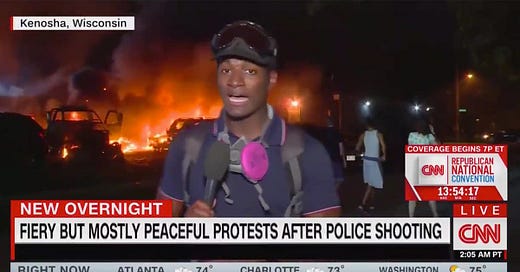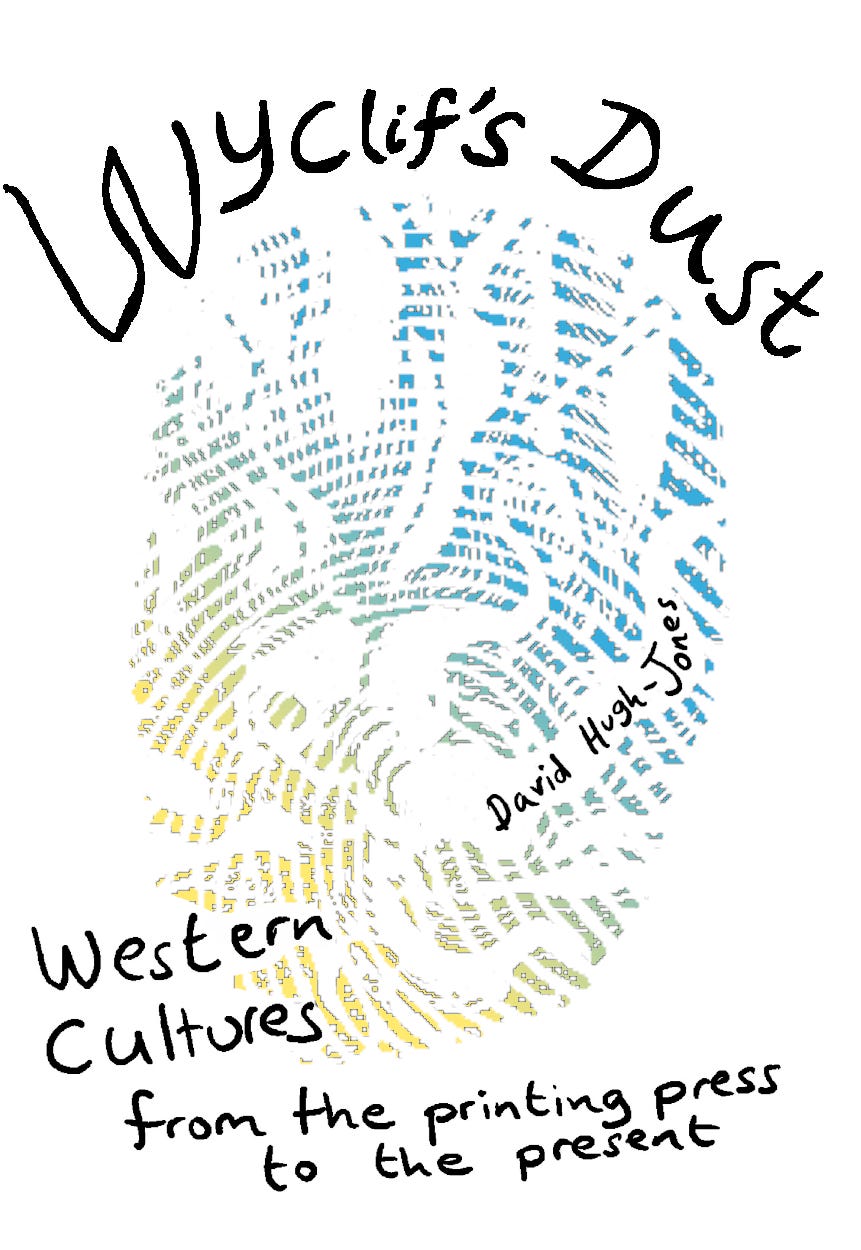Mainstream media also has audience capture
Why higher journalistic standards can't stop media partisanship
This seems like a real paradox:
Mainstream media outlets like the BBC and the New York Times genuinely have higher standards than more “populist” outlets like the Daily Mail or Fox News.
Despite that, there is more anger against mainstream media, and trust in them has declined.
One way to resolve the paradox is just to say media-hating populists are dumb and wrong. I don’t find that very plausible, because some of the biases and failures of the mainstream are too clear to deny, like this famous screenshot from 2020:
A simple model might provide a useful way to think about this.
Media consumers vary on a left-right spectrum, and they like to consume news that is close to them politically. (Maybe they like having their prejudices tickled, or maybe they just find such news more trustworthy and informative for them personally.)
In the old media world, it’s expensive to run a newspaper or TV station. So there aren’t many outlets in the marketplace. The outlets divide up the audience between them, and although they have their own political standpoints, they each capture quite a broad audience:

These media organizations probably have a corporate culture which says it’s good to serve a broad audience, so you shouldn’t be too partisan. Maybe like the BBC they are even officially committed to impartiality.
When the cost of media comes down, many more players enter the market. The new guys probably know that they are going to capture a narrower slice of the consumers! That’s their goal. Fox News set out to appeal to right wing voters from the start, more than the big incumbent networks.
But by entering, they also narrow the audience of the incumbents:
This model is more “duh” than deep, but I think it helps explain the dilemma of mainstream outlets. By ideology and culture, they may genuinely want to be broad. But that isn’t how the media landscape works any more. The New York Times and the BBC have got more left-wing because their audiences have got more left-wing, because the right wing audience drifted away to the new alternatives. (Or maybe centrists drifted away to media like sports channels, leaving only intense, committed political nerds.)
Exposés from journalists at these institutions — there is a whole subgenre of these for people pushed out of the NYT in 2020 — often read as if the problem was ideological zealotry among staff:
My own forays into Wrongthink have made me the subject of constant bullying by colleagues who disagree with my views. They have called me a Nazi and a racist; I have learned to brush off comments about how I’m “writing about the Jews again.” Several colleagues perceived to be friendly with me were badgered by coworkers.
Immediately, the op-ed caused an outcry within the Times. Dozens of the paper’s employees retweeted an identical, or near-identical, statement, workshopped on Slack and rubber-stamped by the NewsGuild of New York, which represents the newspaper’s union (I was a member), claiming that “running this put Black @nytimes staff in danger.”
But, as we nerds say, company culture is endogenous: it is not independent of the market. If more ideologically extreme staff print the stories with the most clicks, then they are going to gain weight within the paper. Actually, the exposés sometimes suggest that themselves:
Why edit something challenging to our readers, or write something bold only to go through the numbing process of making it ideologically kosher, when we can assure ourselves of job security (and clicks) by publishing our 4000th op-ed arguing that Donald Trump is a unique danger to the country and the world?
Bari Weiss again, emphasis added
As everyone knows, the internet knocked the industry off its foundations. ... As the country became more polarised, the national media followed the money by serving partisan audiences the versions of reality they preferred. This relationship proved self-reinforcing. As Americans became freer to choose among alternative versions of reality, their polarisation intensified.
One reason Fox News gets off lighter than the New York Times is that with Fox, you know what you are getting. Nobody expects it not to push its own agenda, and once you acknowledge that, you can still learn something from reading it.
The problem faced by the mainstream media is that they want what they can’t have. They’d like to preserve their image as the old, broad church. And to some degree they can be genuinely committed to those values. I think the BBC, for example, has tried quite hard to represent the voices of “the left behind” who might have voted for Brexit or Reform.
But even the BBC has to get clicks! And the old broad audience is probably not coming back. In effect, they are in an impossible position. Audience capture is not just something that happens to extreme Youtube celebrities. It comes for venerable institutions too.
I have gone paid. Now is a great time to subscribe and support my writing. It costs just £3.50/month, and yearly subscribers get a great big 40% discount, plus a free copy of my book:






This isn't entirely wrong. But as a journalist, my observation is that *writer capture* has been a much bigger force than audience capture.
The owners of the outlets may have always preferred neutral coverage. But the writers were fresh out of a radical studies program at a university. There are many stories of staff pushing their editors far to the left, and that had nothing to do with the audience.
You write:
>> the NYT and BBC have got more left-wing because their audiences have got more left-wing, because the right wing audience drifted away to the new alternatives"
But why did the right wing audience drift away? It was because the BBC/CNN/AP/NYT etc abandoned right-wingers to begin with, focusing on capitalizing "Black" but not "white" and never using the wrong pronouns, instead of how to keep illegal immigration in check. They abandoned coverage of everything right-wingers care about, because their views are quite literally considered evil in the programs that the journalists were trained in.
If we imagine that CNN had made itself a commitment, from the start, to draw its writers from all walks of American life -- rather than just from elite universities -- they would never have lost their audience to the right-wing outlets, and they would still be seen as a gold-standard news source.